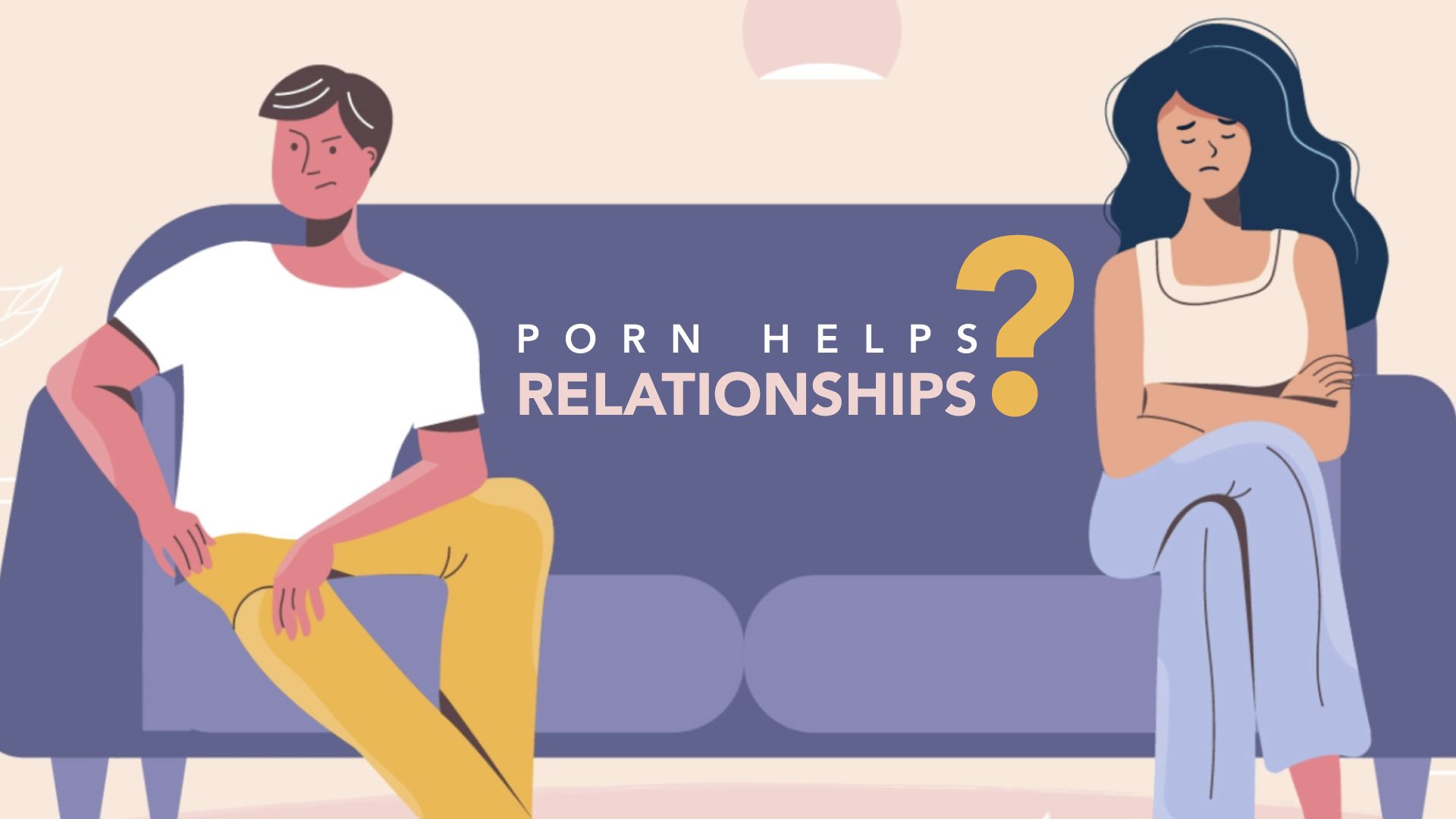You’re in a conversation about pornography and someone says, “Porn isn’t a problem for relationships. It can even be helpful.”
What Would You Say?
Some people claim that porn is not only harmless, it may even increase intimacy for couples. But is that true? No. And here are three reasons why.
You’re in a conversation about pornography and someone says, “Porn isn’t a problem for relationships. It can even be helpful.” What would you say? Some people claim that porn is not only harmless, it may even increase intimacy for couples. But is that true? No, and here are three reasons why: Porn harms sexual satisfaction A 2018 study of 1,500 young adults found that more frequent porn viewing was associated with lower rates of sexual satisfaction. Not only are people who use porn generally less satisfied, their levels of dissatisfaction increase with their level of porn use. The more porn someone watches, the more dissatisfied they generally are. Also, the same study found no evidence at all that porn led to greater sexual satisfaction for anyone. Which leads to the second point. Porn creates unrealistic expectations for sex Porn teaches young people what they should expect for themselves and what they should expect from others. But it’s not just young people, everyone who views porn is exposed to a warped, unrealistic, exaggerated, and unhealthy script about what to expect from sex. Just like photoshopped images of models create standards of beauty that don’t exist in real life, porn creates mental images of sex that are fabricated using the help of airbrushes, cameras, lights, stylists, and video editing tools. The result is a fictional view of sex that doesn’t actually exist for anyone, anywhere, including the people involved in porn. Which leads to the third point. Porn undermines the stability of relationships A 2018 study of 2,120 married adults found that those who began to use pornography after marriage doubled their chances of getting divorced. Other studies found links between porn use and lower levels of commitment to romantic partners, increased rates of infidelity, and overall harm to the perceived quality of a marriage. When our view of what is desirable is defined by something that isn’t real, it inevitably leads to disappointment. The more we desire things that are unhealthy, the less interest we have in things that are good for us. So next time someone tells you that porn is a victimless form of entertainment and can even be good for relationships, remember these three things. Porn harms sexual satisfaction. Porn doesn’t make us more satisfied; it makes us less satisfied. Porn creates unrealistic expectations for sex. Porn provides a fictional view of sex that doesn’t exist in the real world. Those expectations are not simply unrealistic, they’re often unhealthy. Porn undermines the stability of many relationships. Porn use is linked to higher divorce rates, higher rates of infidelity, and lower quality relationships. Let’s be better.
Personal pornography viewing and sexual satisfaction: A quadratic Analysis, Wright, Bridges, Sun, Ezzell, and Johnson (2018) https://www.psychologytoday.com/us/blog/experimentations/201803/4-ways-porn-use-causes-problems Point 1
Til Porn Do Us Part? A Longitudinal Examination of Pornography Use and Divorce, Perry and Schleifer (2018)
You’re in a conversation with a fellow Christian who says, “The news is so depressing. I don’t know who to trust anyway, so I’ve stopped following current events.” What would you say? There’s no doubt that following the news can be overwhelming and discouraging… especially these days. Between talking heads on television, moral lectures from celebrities, and rants on social media, it can seem impossible to dig through the noise and know the truth about anything. However, Christians should be informed and aware of what is happening in our culture, not only for our own sake (so we can make good decisions), but for others (especially our children, our friends, and our communities). So how can Christians engage the chaos in the news without getting overwhelmed, discouraged, or burnt-out? Here are three principles to keep in mind. Number 1: All truth is God’s truth. The first and most important principle for Christians when engaging with any content is this: anything true, wherever we encounter it, is God’s truth. God is the Father of Truth. He has gone to incredible lengths to reveal Truth through His world, His Word, and especially His Son, Jesus Christ. Scripture tells that God is loving and that He is in control. That means that His Truth will not change over time. Truth transcends the contexts of different cultures. So, while we can always learn more in each new historical moment, from truths that are new to us to new applications and facets of Truth, the Truth itself does not change. Satan, on the other hand, is the father of lies. Throughout the Bible, from the very first time in the Garden of Eden when Satan tempted Eve, he sets up false narratives to undermine God’s truth and question God’s character as a loving father. That’s still what Satan does today. He hasn’t changed his tactics. So whenever we engage with the news we can keep this in mind. Anything true comes ultimately from God. Anything false, does not. And, even more than false facts, we should look for false narratives that undermine what is true and cause us to question what he has revealed. This leads to our second principle. Number 2: Focus on God’s story first, and the news second. If we don’t know God’s story, we won’t be able to differentiate between true and false narratives. The most important thing for Christians to do is to learn God’s story. If we don’t know what He has revealed, we will struggle to sort through the news with any clarity. In fact, reading and studying the Scriptures—or, learning God’s story—with a community of faithful believers is essential. When we know how to live and think from God’s story, rather than from the world’s narratives, we won’t be confused or despair by what we see in the news because we have a framework for identifying what is true and knowing where the ideas and issues of our culture fit. Number 3: Read local news stories and find ways to transform them. Christians should be most fully engaged with the news from their local area—from their own neighborhood, town, city, and state. Only after this should we focus in on national news. This may seem counterintuitive, but it has several advantages. First, it is easier to sort through competing narratives when the situation is closer to your life. And second, you’re more likely to be able to do something about problems in your local area. For example, reading a national news story about rising poverty levels is depressing and overwhelming. It’s not always clear what the Christ-like, loving response to that story is. But if you read a local news story about how a homeless shelter down the street needs donations, the action step is clear. You can volunteer or donate. You can even organize a food drive through your church, or you can work with a local youth group to do a service day. You can translate the story into action—you can fit the news into a narrative of God’s love restoring all things. So the next time someone says that they’re discouraged or overwhelmed by the news, share these three principles: Number 1: All truth is God’s truth. Number 2: Focus on God’s story first, and the news second. Number 3: Read local news stories and find ways to transform them. For What Would You Say?, I’m Brooke McIntire.
For more on engaging the news, see Chapter 4, "The Information Age," in A Practical Guide to Culture: Helping the Next Generation Navigate Today's World by John Stonestreet and Brett Kunkle.





